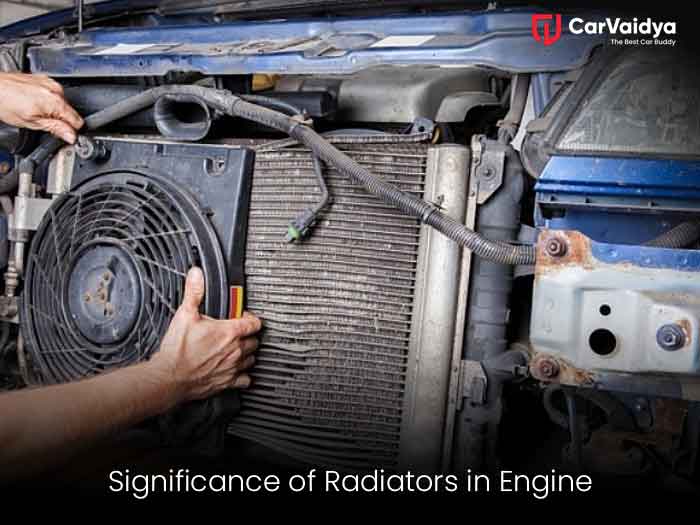Engines, the heart of vehicles, operate under extreme conditions, generating heat as a natural byproduct of combustion. To ensure optimal functioning and prevent overheating, radiators play a crucial role in the cooling system. In this exploration, we delve into the necessity of radiators for engines and uncover the advantages of radiator flushing.
The Engine's Thermal Challenge
Engines convert fuel into mechanical energy through combustion, a process that generates a substantial amount of heat. This heat, if not managed properly, can lead to detrimental consequences such as reduced efficiency, damage to engine components, and, in extreme cases, engine failure. Radiators serve as the primary heat exchangers, dissipating this excess heat and maintaining the engine's temperature within a safe range.
The Role of Radiators in Cooling Systems
Radiators are integral components of a vehicle's cooling system, working in tandem with various other parts like the water pump, thermostat, and cooling fan. Coolant circulates through the engine, absorbing heat, and then flows into the radiator. Here, the radiator facilitates heat exchange, allowing the coolant to release heat into the surrounding air. This process helps regulate the engine's temperature and prevents it from reaching critical levels.
Importance of Radiator Maintenance
Over time, radiators can accumulate deposits, rust, and contaminants that hinder their efficiency. Regular maintenance, including flushing, is essential to keep the cooling system in optimal condition. Flushing involves draining the old coolant, cleaning the radiator and coolant passages, and refilling with fresh coolant. This procedure offers several benefits that contribute to the overall health and performance of the engine.
Advantages of Radiator Flushing
Improved Cooling Efficiency
Flushing the radiator removes accumulated debris and sediment that can impede the flow of coolant. This, in turn, enhances the radiator's ability to dissipate heat efficiently, preventing overheating and promoting optimal engine performance.
Extended Engine Lifespan
Efficient cooling is directly linked to an engine's lifespan. By regularly flushing the radiator, you reduce the risk of engine damage caused by overheating. This preventive measure can significantly extend the life of the engine and its components.
Prevention of Corrosion
Radiators are susceptible to corrosion, especially in systems with inadequate or aging coolant. Flushing helps eliminate corrosive elements, preventing rust and deterioration. This is crucial for maintaining the structural integrity of the radiator and preventing coolant leaks.
Preservation of Thermostat Functionality
Sediment buildup can affect the thermostat's proper functioning. Flushing the radiator ensures that the thermostat operates smoothly, allowing for accurate temperature regulation. A well-functioning thermostat contributes to fuel efficiency and overall engine performance.
Optimized Fuel Efficiency
Efficient cooling directly impacts fuel efficiency. When the engine operates within the recommended temperature range, it functions more effectively, leading to better fuel combustion. This can result in improved mileage and reduced fuel consumption.
Enhanced Heat Transfer
Clean coolant facilitates better heat transfer between the engine and the radiator. Flushing removes any insulating layers, allowing the coolant to absorb and dissipate heat more effectively. This optimized heat transfer is essential for consistent engine performance.
Prevention of Clogs and Blockages
Sediment and deposits can accumulate in the radiator and coolant passages, leading to clogs and blockages. Flushing removes these obstructions, ensuring that the coolant circulates freely. Uninterrupted coolant flow is crucial for preventing hotspots and maintaining uniform temperature distribution.
Reduced Risk of Water Pump Damage
Sediment and contaminants can accelerate wear and tear on the water pump, a critical component of the cooling system. Flushing the radiator helps reduce the risk of water pump damage by eliminating abrasive particles and preserving the pump's longevity.
Environmentally Friendly
Proper disposal of old coolant during the flushing process contributes to environmental responsibility. Recycling or disposing of coolant according to regulations prevents contamination and minimizes the environmental impact.
Early Detection of Issues
Radiator flushing provides an opportunity for a comprehensive inspection of the cooling system. During this process, technicians can identify potential issues such as leaks, worn-out hoses, or a malfunctioning thermostat. Addressing these issues promptly can prevent more extensive and costly repairs down the line.
Conclusion
In essence, radiators are indispensable for maintaining the optimal temperature of vehicle engines. Regular radiator flushing emerges as a proactive and preventive measure that brings a multitude of advantages, from improved cooling efficiency to extended engine lifespan. Understanding the significance of radiators and the benefits of flushing underscores the importance of diligent maintenance in preserving the health and performance of vehicles. As we navigate the intricate workings of engines, acknowledging the role of radiators and embracing routine maintenance practices becomes imperative for both the longevity of the vehicle and the efficiency of its operations.
You can read some other articles
Quick Tips to Cool Your Cars AC For Instant Relief
Early Discoloration Of Car Engine Oil
How to Choose Type Of Rims For Your Cars


0 Comments